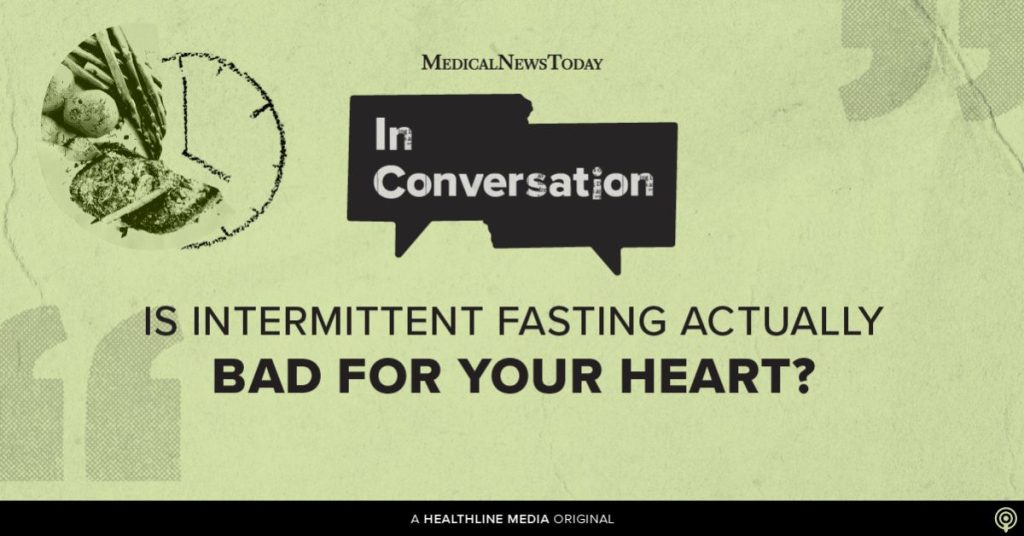Intermittent fasting has gained popularity due to claimed benefits such as weight loss, improved blood sugar levels, and reduced cholesterol in the short term. However, there is conflicting evidence on its long-term effects, especially when it comes to the impact on the human heart. While some studies suggest that intermittent fasting can lower heart disease risk factors, a recent presentation at a scientific conference raised concerns about an increased risk of cardiovascular death when eating within an 8-hour window.
With time-restricted eating still being a relatively new area of research, experts agree that there is a lack of long-term studies on the effects of practices like intermittent fasting on the cardiovascular system. In light of this, Feature Editor Maria Cohut and a guest discussed different aspects of intermittent fasting in a recent podcast episode. Ali Javaheri, MD, PhD, an assistant professor of medicine from the Center For Cardiovascular Research at Washington University, helped answer questions about how intermittent fasting affects the body, its safety for everyone, and what factors should be considered if one decides to practice it.
It is essential to consider the potential risks and benefits of intermittent fasting before adopting the practice. While some short-term benefits have been reported, such as reduced cholesterol levels and improved gut microbiome, there are conflicting findings on its effectiveness for weight loss. With recent concerns about an increased risk of cardiovascular death associated with eating within an 8-hour window, it is crucial to gather more evidence through long-term studies to fully understand the impact of intermittent fasting on overall health, particularly the heart.
Discussing intermittent fasting in podcasts and other platforms can help raise awareness and provide insights into the various aspects of this eating pattern. By having experts like Ali Javaheri, MD, PhD, share their knowledge and expertise, listeners can gain a better understanding of how intermittent fasting affects the body and whether it is a safe practice for everyone. With more research and discussions, individuals can make informed decisions about incorporating intermittent fasting into their lifestyle, considering factors such as overall health and potential risks associated with this eating pattern.
As the debate on intermittent fasting continues, it is essential to stay informed about the latest research findings and expert opinions on this topic. By listening to podcasts and engaging in discussions, individuals can learn more about intermittent fasting’s effects on weight loss, blood sugar levels, cholesterol, and the cardiovascular system. While short-term benefits have been reported, such as reduced heart disease risk factors, the long-term impact of intermittent fasting remains uncertain. By staying updated on the latest information, individuals can make informed decisions about incorporating intermittent fasting into their daily routine, taking into account their overall health and well-being.


